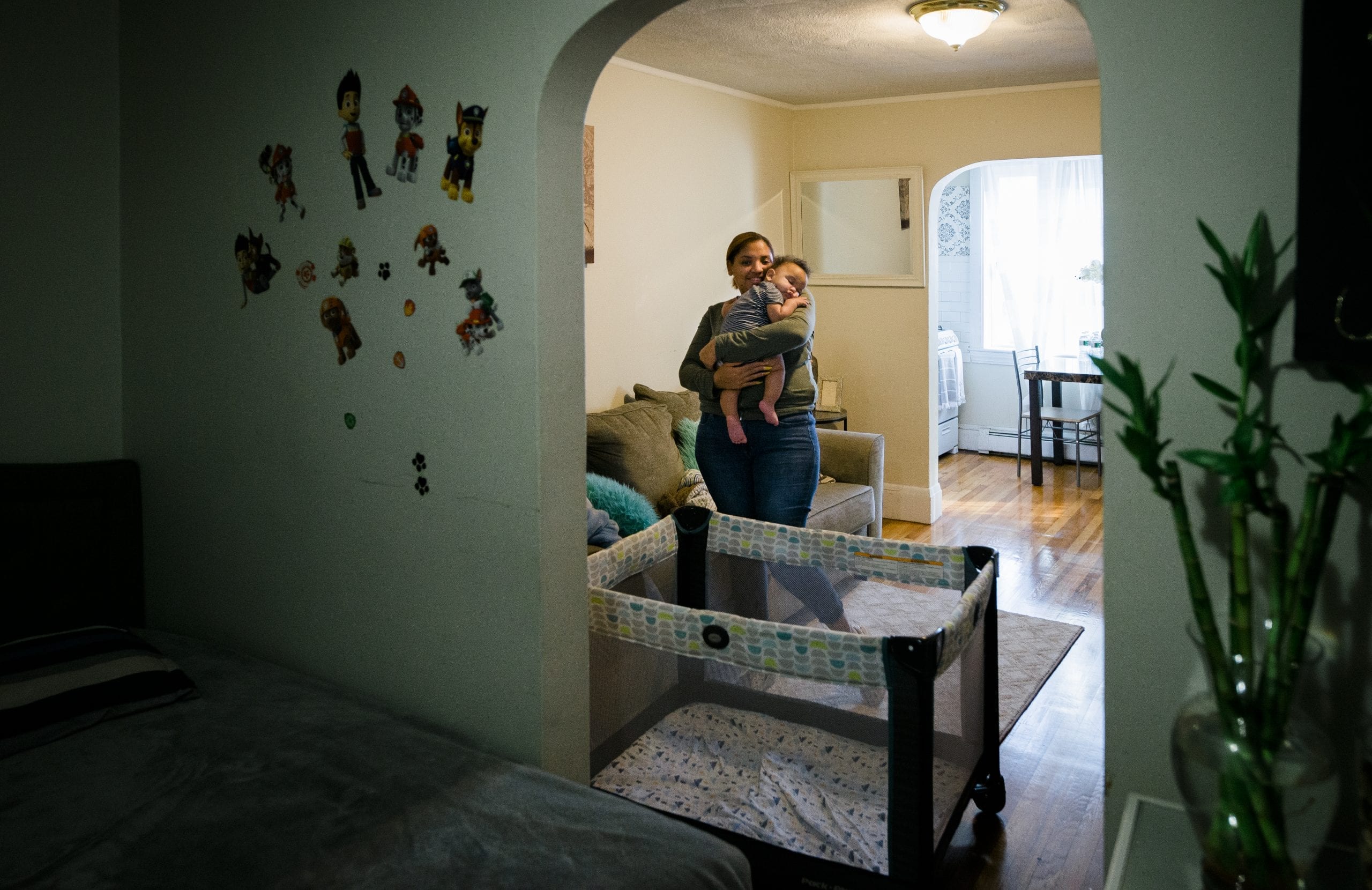Hilkaty Folestal lives in a one-bedroom Lynn apartment that costs $1,200 a month, rents the bedroom to make ends meet, and sleeps with her 6-month-old baby in the living room.
She began to struggle to pay rent when she was laid off from her job as a housekeeper at the Four Points by Sheraton Wakefield, and applied for rental assistance last November.
She did not hear back for another four months.
“RAFT (Residential Assistance for Families in Transition) benefits kept me in my apartment, but it was very frustrating to get to that point,” said Folestal. “It was difficult not to know what was going to happen to me and my baby.”
In the uniquely difficult housing conditions created by the COVID-19 pandemic, RAFT has provided a lifeline for both landlords and tenants, but accessing funds has sometimes been a long and arduous process.
“(RAFT benefits) have been very important for a lot of people,” said Gordon R. Hall, who manages more than 600 apartments (and who is a director of Essex Media Group, which publishes The Item). “If there had been a moratorium without those funds, then it would have been a very, very bad scene.”
“We’ve seen a parent who needs to be home because her kids aren’t in school and can’t work for that reason,” said Hall. “We’ve had people who have gotten sick from COVID and can’t work. We’ve seen people who were laid off because they worked in hospitality. And unemployment benefits have been all over the place.”
He noted that approximately 20 tenants from the 647 units he manages have benefited from the program, but also that many of his tenants had been waiting for up to three months to hear back.
“The Housing Authority has been terrific under really challenging circumstances due to overwhelming demand,” Hall said.
“We have had a little bit of a backlog over the last few months,” said Lynn Housing Authority & Neighborhood Development (LHAND) program coordinator Sara Johnson in late February. “Right now, we’re working on applications from November and December.”
LHAND has been tasked by the state with distributing RAFT funding throughout the North Shore, including in Lynn, Lynnfield, Marblehead, Nahant, Peabody, Salem, Saugus and Swampscott.
For a tenant to actually receive the funds, Johnson said they would still need to wait 14 to 21 business days.
These wait times are not unique to the North Shore, she said, explaining that the waits are in line with what someone would experience throughout the state.
“There’s definitely been an increased volume, for obvious reasons,” Johnson said. “We’ve had to hire new staff and add technological improvements to do things a little more quickly.”
Wait times have also been exacerbated by staff having to work remotely during the pandemic, she said.
People like Hilkaty have seen their bills pile up while they wait for RAFT approval.
She said the wait left her stressed out to the point where her mental health was affected.
But Johnson said the RAFT response is steadily improving. Changes have been made to the system that will help to streamline the process and bring wait times down to three weeks, she said.
“We’re making very good progress and pretty soon we’ll be caught up to date. We’re hoping to be able to start responding in three weeks, if not earlier,” she said.
She pointed to changes in the state’s identification requirements, which initially called for the submission of identification cards and Social Security information for all members of a household receiving RAFT funds, and changes to the income-eligibility requirements, which allow anyone registered with MassHealth to receive RAFT benefits.
She said the state has been responsive to their advice and feedback for the program.
The program does provide some relief for people stuck waiting. For instance, in cases where an eviction is pending, housing courts will take a pending RAFT application into consideration, and give the tenant time to hear back from RAFT regarding their funds, Johnson said.
And when the funds do come, they can be life-changing.
“A hundred and twenty million percent,” said Robyn Frost, executive director of The Massachusetts Coalition for the Homeless, when asked if she had seen RAFT funding help the population that she works with. “If RAFT wasn’t around, we would be decimated. Landlords would be decimated. Tenants would be homeless.”
RAFT benefits were expanded early in the pandemic, as the state sought to address a potential eviction crisis. Benefits were initially capped at $4,000, but that threshold has been raised to $10,000.
The distribution of that funding has been tasked to various agencies throughout the state including LHAND, which disperses funds throughout the North Shore.
They were initially granted $4.23 million and have recently learned that they were awarded additional funding, which includes a federal allocation.
Of the original $4.23 million that LHAND received, $3.72 million of that funding had been committed by late February.
Guthrie Scrimgeour can be reached at [email protected].

